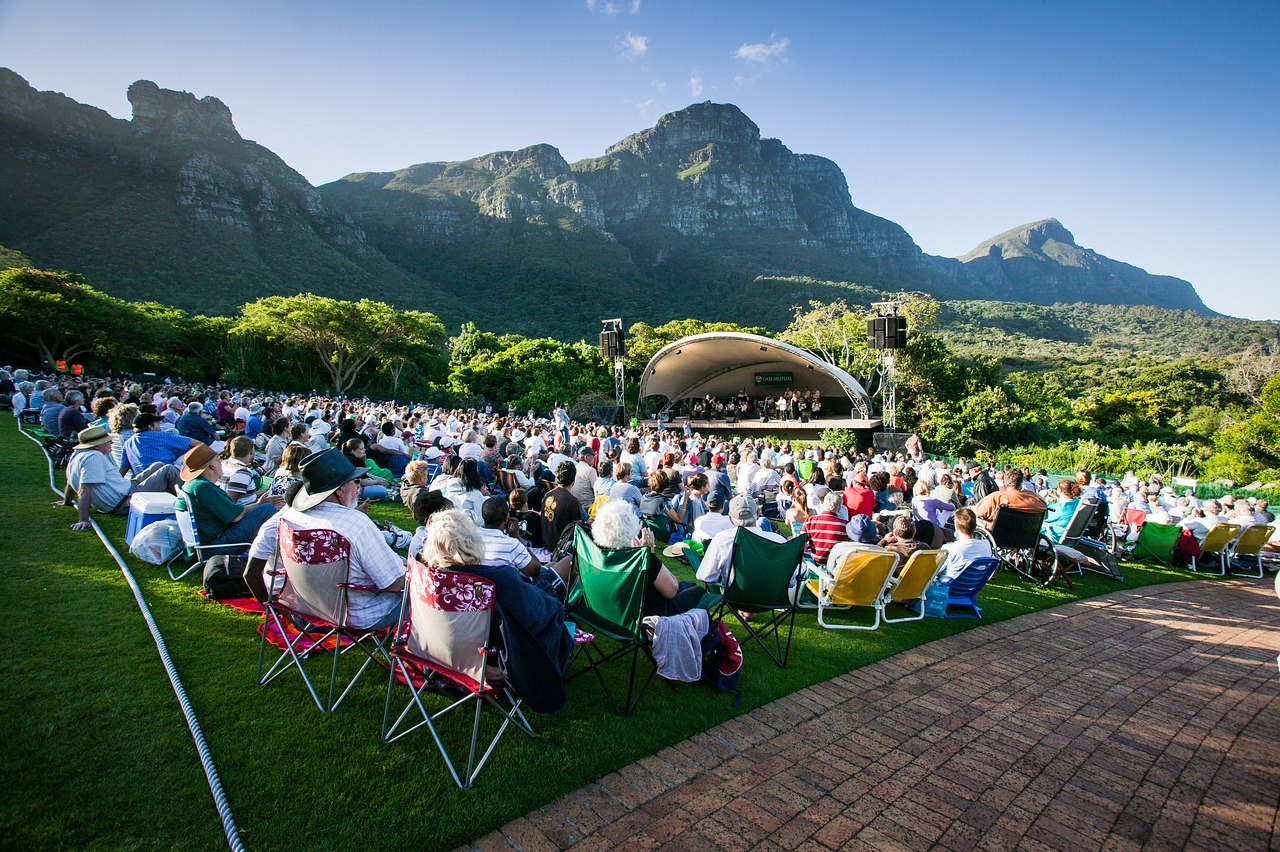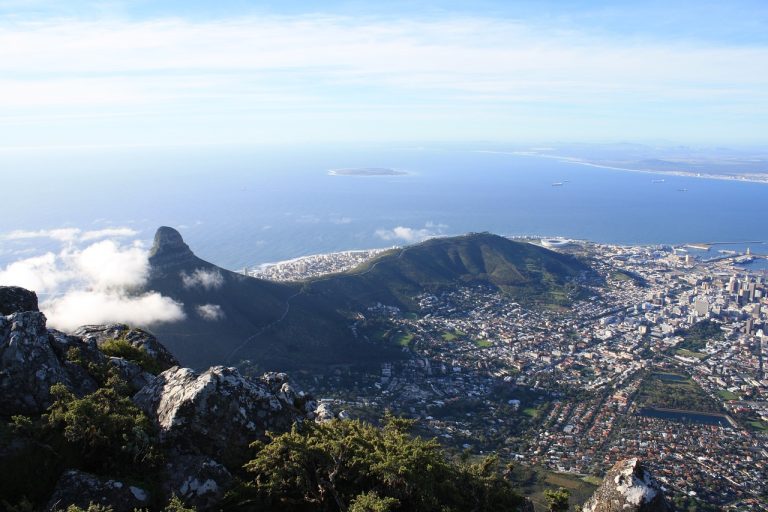Cape Town South Africa Video
Eco-tourism in Cape Town South Africa: Sustainable and Green Travel Options
Cape Town, located on the southwestern coast of South Africa, is a vibrant city known for its stunning natural landscapes, diverse wildlife, and rich cultural heritage. In recent years, the city has also emerged as a popular destination for eco-tourism, offering sustainable and green travel options for environmentally conscious travelers. This article explores some of the top eco-friendly activities, accommodations, and initiatives in Cape Town, making it an ideal destination for those seeking to minimize their impact on the environment while enjoying a memorable travel experience.
Nature Reserves and National Parks
One of the highlights of eco-tourism in Cape Town is the abundance of nature reserves and national parks that showcase the region’s unique biodiversity. These protected areas offer visitors the opportunity to explore diverse ecosystems, observe wildlife, and engage in various outdoor activities. Some popular nature reserves and national parks in Cape Town include:
- Table Mountain National Park: Spanning over 22,000 hectares, Table Mountain National Park is a UNESCO World Heritage site and home to an incredible variety of flora and fauna. Visitors can hike or take a cable car to the top of Table Mountain, explore the Cape of Good Hope, or enjoy leisurely walks in the indigenous forests.
- Kirstenbosch National Botanical Garden: Situated at the eastern foot of Table Mountain, Kirstenbosch is a world-renowned botanical garden that showcases the rich plant diversity of the Cape Floristic Region. Visitors can take guided tours, attend outdoor concerts, or simply relax and enjoy the tranquil surroundings.
- Boulders Beach: Located in Simon’s Town, Boulders Beach is famous for its colony of African penguins. Visitors can observe these charming creatures up close while respecting their natural habitat and contributing to conservation efforts.
By visiting these nature reserves and national parks, travelers not only get to experience the beauty of Cape Town’s natural environment but also support the conservation and preservation of these precious ecosystems.
Lodges and Hotels
When it comes to eco-friendly accommodations, Cape Town offers a range of lodges and hotels that prioritize sustainability and environmental responsibility. These establishments implement various initiatives to minimize their carbon footprint, conserve resources, and support local communities. Some notable eco-friendly lodges and hotels in Cape Town include:
- Grootbos Private Nature Reserve: Located near Hermanus, Grootbos is an award-winning eco-lodge that focuses on conservation and community development. The lodge offers luxurious accommodations, guided nature walks, and immersive experiences that highlight the region’s unique flora and marine life.
- Hotel Verde: As one of Africa’s greenest hotels, Hotel Verde is designed with sustainability in mind. It features energy-efficient systems, a rooftop garden, and an on-site waste water treatment plant. Guests can enjoy eco-friendly amenities and explore nearby attractions such as the Zeitz Museum of Contemporary Art Africa.
- Thonga Beach Lodge: Situated within the iSimangaliso Wetland Park, Thonga Beach Lodge provides a secluded and eco-friendly retreat. The lodge operates off-grid, utilizing solar power and responsible waste management practices. Guests can enjoy pristine beaches, snorkeling, and turtle tours.
Staying at these eco-friendly lodges and hotels not only ensures a comfortable and sustainable travel experience but also supports the local communities and conservation efforts of the region.
Cape Town South Africa Image 1:

Eco-friendly Tours and Activities
To fully immerse in the eco-tourism experience in Cape Town, there are numerous tours and activities available that promote sustainable practices and responsible travel. These tours provide unique insights into the local culture, natural wonders, and conservation efforts. Some eco-friendly tours and activities in Cape Town include:
- Bicycle Tours: Explore the city and its surroundings on a bicycle tour, promoting eco-friendly transportation and reducing carbon emissions. These tours often include visits to cultural landmarks, scenic routes, and local communities.
- Wine Tours: Discover the sustainable practices of Cape Town’s renowned wine estates through eco-friendly wine tours. Learn about organic and biodynamic farming methods, taste organic wines, and support local vineyards that prioritize sustainability.
- Marine Wildlife Excursions: Join responsible marine wildlife excursions that offer opportunities to observe whales, dolphins, seals, and other marine creatures in their natural habitats. These tours often have experienced guides who educate visitors about marine conservation.
Engaging in these eco-friendly tours and activities allows travelers to have a deeper connection with Cape Town’s natural and cultural heritage while minimizing their impact on the environment.
Restaurants and Cafés
Cape Town’s culinary scene is known for its diverse flavors and farm-to-table philosophy. Many restaurants and cafés in the city prioritize sustainability by sourcing local, organic ingredients and implementing eco-friendly practices. Some eco-conscious dining establishments in Cape Town include:
- The Test Kitchen: This award-winning restaurant focuses on sustainable sourcing and seasonal menus, offering a unique dining experience that showcases the best of Cape Town’s culinary creativity.
- Truth Coffee Roasting: Known for its ethically sourced and fair-trade coffee, Truth Coffee Roasting promotes sustainability throughout its supply chain. The café also features a steampunk-inspired interior, adding to the unique ambiance.
- Oranjezicht City Farm Market: This vibrant farmers’ market supports local farmers and artisans, offering a wide range of fresh produce, homemade products, and sustainable food options. Visitors can enjoy delicious meals made from locally sourced ingredients.
By dining at these eco-conscious establishments, travelers can savor delicious meals while supporting sustainable agricultural practices and reducing their carbon footprint.
Cape Town South Africa Image 2:

Waste Management and Recycling Initiatives
Cape Town has made significant efforts to improve waste management and recycling practices, aiming to reduce the environmental impact of tourism and promote a cleaner, greener city. Some notable waste management and recycling initiatives in Cape Town include:
- Separation at Source: The city has implemented a separation at source program, encouraging residents and businesses to separate their waste into recyclables and non-recyclables. This initiative helps divert waste from landfills and promotes recycling.
- GreenCape: GreenCape is a non-profit organization that works with businesses, government, and academia to promote sustainable waste management practices. They provide resources and support to encourage recycling and waste reduction.
- Recycling Drop-off Points: Cape Town has established numerous recycling drop-off points where residents and visitors can responsibly dispose of recyclable materials such as paper, plastic, glass, and metal.
By participating in these waste management and recycling initiatives, travelers can contribute to the overall sustainability of Cape Town and help preserve its natural beauty for future generations.
Community-Based Tourism Projects
Community-based tourism projects in Cape Town offer visitors the opportunity to engage with local communities, learn about their traditions, and support their economic development. These projects often focus on empowering marginalized groups and promoting sustainable livelihoods. Some community-based tourism projects in Cape Town include:
- Bo-Kaap Cultural Experience: Explore the vibrant neighborhood of Bo-Kaap and learn about the Cape Malay culture through guided tours, cooking classes, and interactive experiences. This initiative supports local residents and preserves the cultural heritage of the area.
- Khayelitsha Township Tours: Experience the vibrant township of Khayelitsha through guided tours led by local residents. These tours provide insights into the daily lives, history, and community initiatives within the township.
- Craft Markets and Workshops: Visit craft markets and workshops that showcase the talents of local artisans. By purchasing handmade crafts, visitors directly support the livelihoods of these artisans and contribute to the local economy.
Participating in community-based tourism projects allows travelers to have meaningful interactions with local communities while promoting sustainable development and cultural preservation.
Cape Town South Africa Image 3:

Transportation Options
Choosing sustainable transportation options is an essential aspect of eco-tourism in Cape Town. The city offers various eco-friendly transportation alternatives that reduce carbon emissions and promote a greener travel experience. Some sustainable transportation options in Cape Town include:
- MyCiTi Bus: The MyCiTi bus service provides a convenient and eco-friendly way to explore Cape Town and its surroundings. The buses are fueled by compressed natural gas, reducing air pollution and carbon emissions.
- Bicycle Rentals: Many rental companies in Cape Town offer bicycles for hire, allowing visitors to explore the city at their own pace while minimizing their carbon footprint.
- Walking Tours: Cape Town’s compact city center is easily navigable on foot, making walking tours a sustainable and enjoyable way to explore the city’s cultural landmarks and hidden gems.
By opting for these sustainable transportation options, travelers can contribute to reducing air pollution and promoting a healthier environment in Cape Town.
Conclusion
Cape Town, with its incredible natural beauty and commitment to sustainability, offers a plethora of eco-friendly travel options for visitors. From exploring nature reserves and national parks to staying at eco-lodges and engaging in community-based tourism projects, there are numerous ways to experience the city’s rich biodiversity and vibrant culture while minimizing environmental impact. By choosing sustainable accommodations, participating in eco-friendly tours, supporting local businesses, and practicing responsible waste management, travelers can contribute to the preservation of Cape Town’s natural heritage and ensure a greener future for generations to come.
References
- Grootbos Private Nature Reserve – www.grootbos.com
- Hotel Verde – www.hotelverde.com
- Thonga Beach Lodge – www.isibindi.co.za
- The Test Kitchen – www.thetestkitchen.co.za
- Truth Coffee Roasting – www.truth.coffee
- Oranjezicht City Farm Market – www.ozcf.co.za
- MyCiTi Bus – www.myciti.org.za







